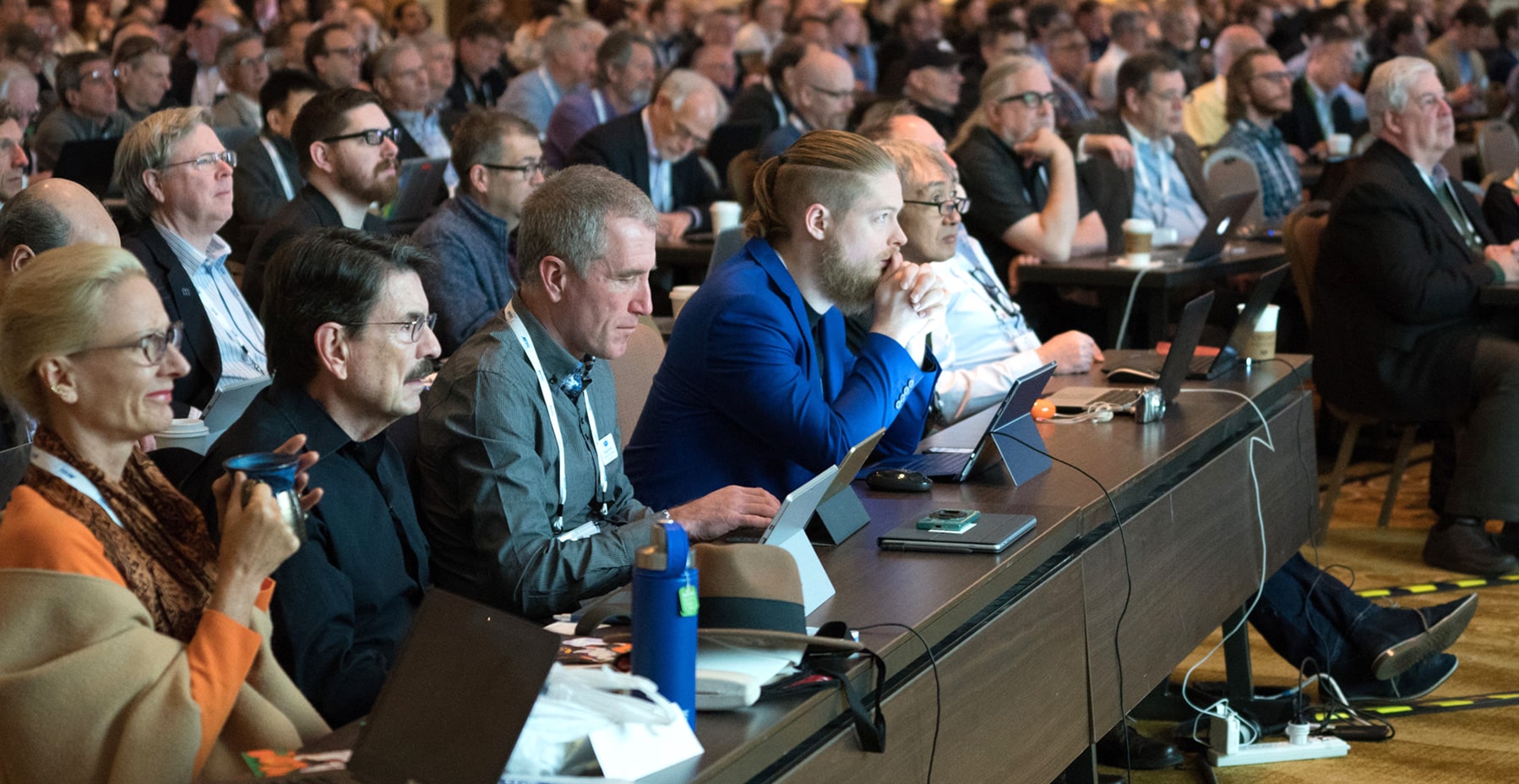Cold desert mornings & IMF conversations!
The sound of an alarm clock breaking through the fog of last night’s networking in the bar. It’s still dark outside, but if I don’t ride my bicycle then all those calories will turn me into a heavyweight of the industry. Two hours later, the warm shower has removed all traces of exercise except for the fixed smile of someone descending too fast when the temperature is 1°C.
The dining tent at the Hollywood Professional Association Tech Retreat smells of bacon and coffee and I arrive 5 minutes early at the IMF DPP table. Rowan de Pomerai and myself have arranged this breakfast table to discuss the IMF activities of the DPP, especially the first SMPTE Technical Specification TSP 2121-1 that covers the use of ProRes in IMF.
Welcome to the IMF DPP table…
Good and bad news awaits me. I am early (a miracle), but the table is already full and there is no more space. This is great. It shows that there is genuine interest in the practical issues of IMF adoption from studios, broadcasters, vendors, post houses, content creators and just about everyone in the value chain. The conversation is wide ranging and covers key topics and highlighting the fact that IMF is concerned with the business of automating the content supply chain. Dalet’s interest in the format should be obvious. A large company with a great track record in Asset Management, Media Orchestration and Cost optimization for its customers is pretty much a definition of what a standard like IMF is seeking to improve across the industry.
“Why ProRes in IMF?” was the first big question and really it’s all to do with efficiency. The BBC and many European companies have a lot of high quality original material in ProRes. Transcoding it to J2k before processing the high quality master seems like it would add cost without adding value, so ProRes was added to IMF. Dalet Galaxy five and Dalet AmberFin both handle ProRes MXF and DPP’s IMF flavor of TSP-2121.
“Why a Specification and not a Standard?” was the next biggy. Fundamentally, the DPP wanted a document that could reference non-standards (like a SMPTE RDD and the way in which Control-Track audio description is used in the UK). The DPP wanted something with more public scrutiny than an RDD, but something that could be changed more dynamically than a full standard. This reflects the fact that the use of IMF in the TV market is likely to be quite dynamic for the first few years. As a result the DPP delivered the first of SMPTE’s Technical Standards.
IMF adoption and the API project
Over the rest of the hour (and during the breakfasts on the next two days), we discussed adoption of IMF, the need for timeline metadata to allow program segmentation, the carriage of proxies and the identification of people on set. We discussed the provision of on-screen signing for the deaf and testing of the different IMF standards and specifications. On the final breakfast we discussed the new API project http://imf-mm-api.cloud. This counts Dalet as one of the project supporters and seeks to allow IMF applications to locate and use content managed by Asset Management Systems that might be local or remote. Open source code is due to be available at NAB 2019.
Just before 9am, the gentle melody of the Breakfast Gong is sounded to indicate that we should all file into the Conference Room for the day’s keynote. HPA Tech Retreat is a truly unique type of conference where deep discussions on real topics take place. The mindset of the entire industry changes direction at this conference every year. I, for one, feel privileged to attend.
Interested in IMF? Get the white paper!





